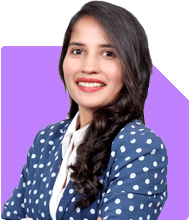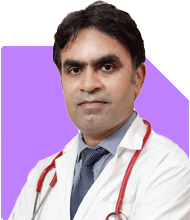Acid reflux: Foods, habits and practices for relief?
Dr Karthiyayini Mahadevan | Answer |Ask -Follow
General Physician - Answered on Oct 02, 2024
She specialises in general medicine, child development and senior citizen care.
A graduate from Madurai Medical College, she has DNB training in paediatrics and a postgraduate degree in developmental neurology.
She has trained in Tai chi, eurythmy, Bothmer gymnastics, spacial dynamics and yoga.
She works with children with development difficulties at Sparrc Institute and is the head of wellness for senior citizens at Columbia Pacific Communities.... more

Dear mam, 1) What could be best habit / food / practices to deal with Acid Reflux ?
No animal protein at dinner meal
Avoid oily and spicy food
You may like to see similar questions and answers below
Dr Natasha Kumrah | Answer |Ask -Follow
GP, Diabetologist, Gastroenterologist - Answered on Mar 20, 2023
Shreya Shah | Answer |Ask -Follow
Nutritionist, Diabetes Educator - Answered on Feb 23, 2024
Dr Karthiyayini Mahadevan | Answer |Ask -Follow
General Physician - Answered on Oct 21, 2024
Dr Chandrakant Lahariya | Answer |Ask -Follow
Diabetologist, Consultant Physician, Vaccine Expert - Answered on Oct 24, 2024
Ramalingam Kalirajan |10906 Answers |Ask -Follow
Mutual Funds, Financial Planning Expert - Answered on Dec 19, 2025
Nayagam P P |10859 Answers |Ask -Follow
Career Counsellor - Answered on Dec 19, 2025
Ramalingam Kalirajan |10906 Answers |Ask -Follow
Mutual Funds, Financial Planning Expert - Answered on Dec 19, 2025
Ramalingam Kalirajan |10906 Answers |Ask -Follow
Mutual Funds, Financial Planning Expert - Answered on Dec 19, 2025
Ramalingam Kalirajan |10906 Answers |Ask -Follow
Mutual Funds, Financial Planning Expert - Answered on Dec 19, 2025
Radheshyam Zanwar |6751 Answers |Ask -Follow
MHT-CET, IIT-JEE, NEET-UG Expert - Answered on Dec 19, 2025
Radheshyam Zanwar |6751 Answers |Ask -Follow
MHT-CET, IIT-JEE, NEET-UG Expert - Answered on Dec 19, 2025
Samraat Jadhav |2514 Answers |Ask -Follow
Stock Market Expert - Answered on Dec 18, 2025
Reetika Sharma |432 Answers |Ask -Follow
Financial Planner, MF and Insurance Expert - Answered on Dec 18, 2025
Reetika Sharma |432 Answers |Ask -Follow
Financial Planner, MF and Insurance Expert - Answered on Dec 18, 2025



























